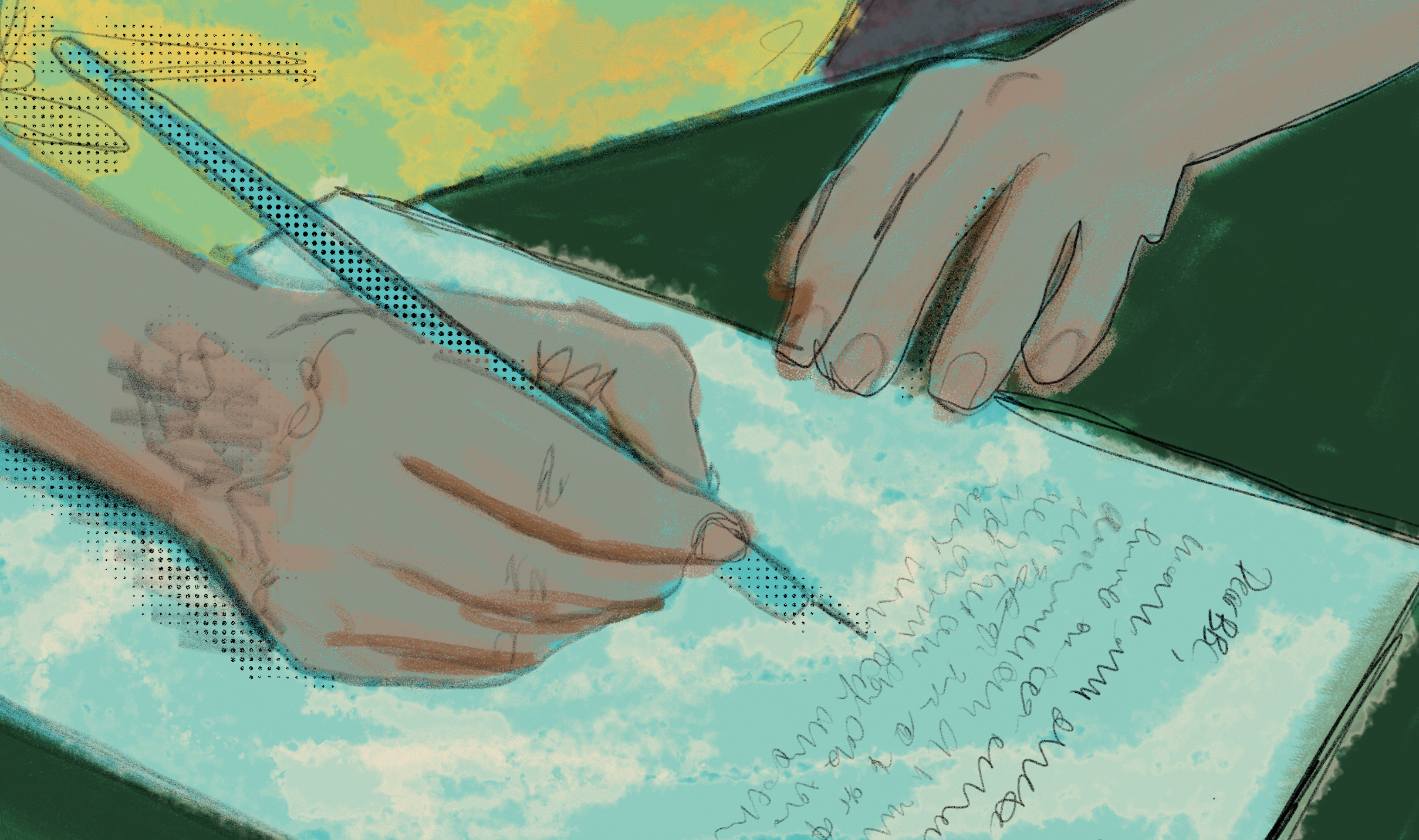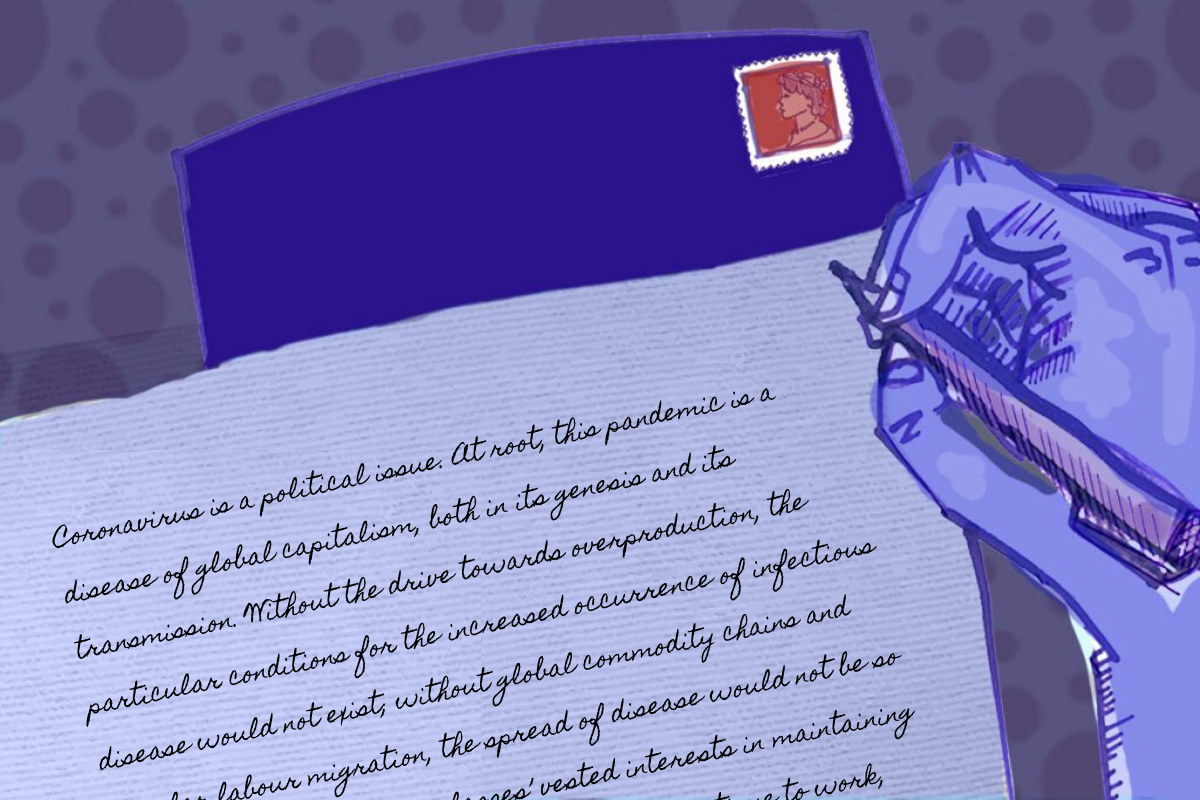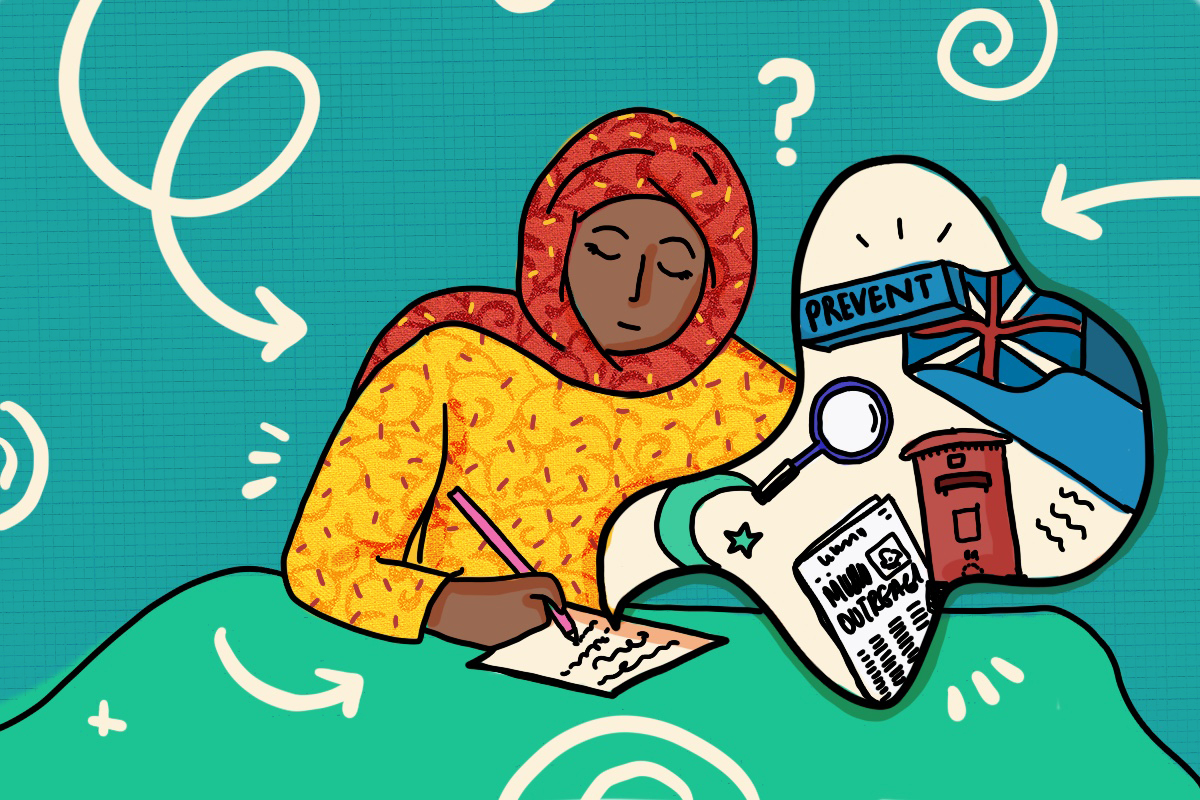
Open Letter to the BBC on Zara Mohammed’s mistreatment on Woman’s Hour
After Emma Barnett’s recent interview with Secretary General Zara Mohammed from the Muslim Council of Britain, the BBC needs to address its engagement with and representation of Muslim women.
Yassmin Abdel-Magied and Mariam Khan
17 Feb 2021
On 4 February 2021, Radio 4’s Woman’s Hour invited Zara Mohammed on the programme. She recently made British history by becoming the first woman and youngest person to be elected to lead the Muslim Council of Britain (MCB), a national umbrella body representing over 500 Muslim organisations. Mohammed’s appointment was a significant moment for many British Muslim women and so appearing on Woman’s Hour four days into her role was fitting. In this context, the tone of the interview was disappointing and strikingly hostile.
The host, Emma Barnett, persistently asked, ‘How many female imams are there in Britain?’ When Mohammed said she didn’t know and queried what was meant by the broad religious term, Barnett replied ‘You tell me’, citing the rise of female priests and rabbis. She then continued, ‘it’s quite striking you can’t answer that question’. Despite Mohammed’s repeated claims that religious adjudication was not within the parameters of her role leading a civil society organisation, Barnett asked the question about female imams four times, each time interrupting Mohammed’s answer. The framing of the interview and clipping up of the ‘female imam’ segment for social media mirrored the style and tone of an accountability interview with a politician, rather than authentically recognising and engaging in what this represented for British Muslim women. Moreover, the false equivalence between imams with rabbis and priests in a religion that has no clergy reflected a basic lack of religious literacy needed for authentic engagement with British Muslim communities.
The interview continued onto what Mohammed would do about the exclusion of some Muslim women from society, whether the MCB needs to reform and the relationship between Islam and other religions. Again, most of Mohammed’s answers were interrupted, revealing an instinctive urge not to listen to the voice of a Muslim woman but to jump in. Despite the BBC having a commitment to due impartiality and fairness, the line of questioning fell into a well-worn narrative of presuming Muslim women are inherently disenfranchised due to the parameters of a faith that supposedly has not reformed. What might have been an opportunity to inform the wider audience about what is possible in Muslim communities, the interview appeared intent on re-enforcing damaging and prejudicial tropes about Islam and Muslim women.
The numerous complaints online and in private to the BBC has led to Woman’s Hour removing the original tweet, stating that in retrospect ‘the clip should have included more of the radio interview to provide full context of the discussion’. Whilst the removal of the clip is welcome, this response is insufficient. The tone and framing of the entire interview must be seriously assessed. There is an important difference between a style of questioning that undermines a woman’s voice and one that holds her to account.
It is perhaps no coincidence that this comes against a background where Muslim voices are underrepresented at every level within the BBC. By its own admission in the BBC’s latest Annual Report, there are virtually no Muslims working at BBC Studios (TV and radio production), which includes the production of Woman’s Hour, at either staff or leadership levels. An asterisk in the report indicates a number so minuscule it cannot be reflected in a percentage of over 0.2%. Similarly, there are no significant numbers of Muslims in commissioning roles or in leadership positions within news and current affairs. This lack of representation within the institution, especially at leadership levels, reveals a failure in implementing the BBC’s values to have an organisation that reflects its audiences.
The lack of representation within programming, such as Woman’s Hour, means that crucial insights in engaging with and reporting on Muslim communities are missed. The data on almost 5000 episodes of Woman’s Hour broadcasts over the last 20 years indicates that less than 300 guests (2.4%) have been Muslim women and many of these have not been British. Although the trend had been increasing steadily, since 2016 the representation of Muslim women began to trend down again. However, it is important to note that numbers alone do not paint a complete picture: what is pertinent is the quality of representation.
We, the undersigned, request the following:
– A public statement recommitting to engaging with Muslim women and those from historically marginalised communities in good faith,
– A commitment to recruiting Muslims in leadership and commissioning roles or developing pathways for those in non-leadership positions to reach these roles,
– A commitment to programmes ensuring diverse production and editorial teams.
Yours Sincerely,
You can add your name to the list of signatories here.
Baroness Sayeeda Warsi, Peer in the House of Lords and Author, The Enemy Within: A Tale of Muslim Britain
Baroness Uddin, Peer in the House of Lords
Naz Shah MP, Labour, Shadow Minister for Comunity Cohesion and Co-Chair of APPG on Muslim Women
Zarah Sultana MP, Labour
Apsana Begum MP, Labour
Yassmin Abdel-Magied, Writer
Mariam Khan, Writer and Editor, It’s Not About the Burqa
Diane Abbott MP, Labour
Afua Hirsch, Journalist and Author, Brit(ish)
Deborah Frances-White, The Guilty Feminist podcast host
Gal-dem, Media company
Dr Amina Wadud, Theologian
Mona Eltahawy, Author, Headscarves and Hymens and Editor, Feminist Giant newsletter
Layla F. Saad, Author, Me And White Supremacy
Rafia Zakaria, Author, Against White Feminism
Shelina Janmohamed, Author, Love in a Headscarf
Nikesh Shukla, Author and Editor, The Good Immigrant
Jordan “Rizzle” Stephens, Rizzle Kicks’ singer and actor
Professor Priyamvada Gopal, University of Cambridge
Professor Kehinde Andrews, Birmingham City University
Larissa Kennedy, President, National Union of Students
Zamzam Ibrahim, Vice President, European Students Union
Jo Grady, General Secretary, University and College Union
Sir Iqbal Sacranie OBE, Founding Secretary General, Muslim Council of Britain
Dr Muhammad Abdul Bari, Former Secretary General, Muslim Council of Britain, former Chairman, East London Mosque
Salma Yaqoob, Former Birmingham City Councillor and Leader, Respect party, former spokesperson, Birmingham Central Mosque
Faiza Shaheen, Director, CLASS think tank
Mona Chalabi, Journalist
Coco Khan, Journalist
Kate Williams, Historian
Shaista Aziz, Journalist
Rachel Shabi, Journalist
Clare Sambrook, Journalist
Anisa Subedar, Journalist
Gina Martin, Activist and author
Dr Shola Mos-Shogbamimu, Activist and author
Florence Given, Author, Women Don’t Owe You Pretty
Seyi Akiwowo, CEO, Glitch UK
Nafisa Bakkar, CEO, Amaliah
Selina Bakkar, Editor, Amaliah
Shaista Gohir OBE, Co-Chair, Muslim Women’s Network UK
Faeeza Vaid MBE, Executive Director, Muslim Women’s Network UK
Sara Wazifdar, Chairperson, Muslim Youth Helpline
Maaria Mahmood, Director, Muslim Youth Helpline
Muslim Community Helpline team
Professor Sunny Singh, London Metropolitan University
Professor Francis Davis, University of Birmingham
Kathryn Fleming, Priest, Church of England
Reverend Bonnie Evans-Hills, Anglican Priest
Eric Potts, Methodist Minister
Onjali Qatara Rauf, CEO, Making HerStory
Neil Jameson CBE, Former Executive Director, Citizens UK and Citizens Commission on Islam, Participation & Public Life
Dr Adeela Shafi MBE, Bristol Muslim Strategic Leadership Group
Ragad Altikriti, President, Muslim Association of Britain (MAB)
Roxana Rais, Activist, Muslim Women’s Advisory Council
Abdulkarim Gheewala, Chairperson, Federation of Muslim Organisations
Yasmin Surti, Secretary, Federation of Muslim Organisations
Hadil Nour, Muslim Youth Helpline
Selina Ullah, Muslim Women’s Council
Shahed Ezaydi, Deputy Editor, Aurelia Magazine
Inua Ellams, Poet and Playwright
Derek Owusu, Poet
Nimo Omer, Journalist
Hauwa Shehu, Barrister
Amanda Randone, Writer
Aja Barber, Writer
Elijah Lawal, Writer
Huda Fahmy, Author
Joanne Harris, Author
Mark Andresen, Author
Asma Elbadawi, Poet
Afshan D’souza-Lodhi, Writer
Christopher Miss, Musician
Dr Fauzia Ahmad, Senior Lecturer, Goldsmiths, University of London
Dr Omar Hisham Altalib, Altalib Associates
Dr Muna Abdi, MA Education Consultancy CIC
Dr Khursheed Wadia, University of Warwick
Dr Naomi Foyle, Fellow of the Muslim Institute
Peter Hopkins, Academic, Newcastle University
Sümeyye Kocaman, University of Oxford
Sher Aslam, University of Oxford
Ruby Hamad, University of New South Wales, Author
Karen E. H. Skinazi, University of Bristol
Majd Abdulghani, University of Oxford
Saleema Burney, SOAS
Khaleda Rahman, Lecturer
Rehana Sharif, Lecturer
Shamza Khan, Lecturer
Terry O’Donnell, Retired academic
Yasmine Dar, Labour Councillor and NEC Member
Soonu Engineer, Labour Party
Ali Milani, Labour Councillor
Salma Arir, Labour Councillor
Emma Dent Coad, Labour Councillor
Pat Mason, Councillor
Sandra Holliday, Chair, Welsh Labour Grassroots, Rhondda Cynon Taf
Mrs Saqibah Sheikh, Chief People Officer and MCEC co-Chair
Jemma Levene, Deputy Director, HOPE not hate
Zohra Khaku, The Climate Coalition
Femi Oluwole, Co-founder, Our Future, Our Choice
Clementine Ford, Writer and broadcaster
Nadir Nahdi, Producer and Filmmaker.
Dr Rodney Watts, Human Rights activist, Jewish Network for Palestine
Zabia Khatoon, Chaplain, NHS








